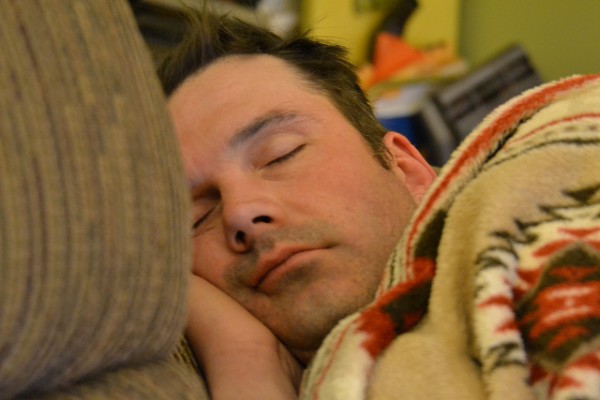By Dane Lorica, | December 02, 2016

Sleeping angry makes it harder to suppress bad memories upon waking up, according to a new study. (Tony Alter/CC BY 2.0)
A new research has found that individuals carrying negative emotions are less capable of forgetting bad memories after a slumber than they were before sleeping. Therefore, it is not advisable to sleep with anger.
During sleep, information gathered throughout the day is processed and stored into memory. The study explained that memories are solidified after sleep, making negative memories harder to suppress when a person awakens.
Like Us on Facebook
The research included 73 participants from England who were asked to see 26 pictures of human faces that showed neither negative nor positive emotions. However, these neutral photos came with a partner image that shows desolation, injured individuals, corpses and mourning kids. The participants were then asked to look at the neutral faces again and forget the desolating images.
The participants were nine percent less likely to remember the negative photos compared to the neutral ones. The process was repeated on the next day following a night of sleep. The participants revealed that they experienced difficulty in erasing the negative images from their heads. From nine percent, the chance of forgetting dropped to three percent.
Brains of the participants were scanned with fMRI machines during the study. The researchers found out that before sleeping, the hippocampus or the memory center was involved in suppressing negativities. However, after a night's sleep, other portions of the brain became active in the process of forgetting.
The co-author of the study, Yhunzhen Liu, explained that "overnight consolidation makes aversive memory more resistant to suppression by promoting hippocampal-neocortical reorganization of the memory."
This may be linked to post-traumatic stress disorder which disables people to forget traumatic events in their lives. Neuroscientist Chirstoph Nissen from the University of Freiburg said that "the results are of major interest for treating the frequent clinical problem of unwanted memories, memories of traumatic events being the most prominent example."
With the findings, Liu suggests that arguments should be resolved before sleeping. The researchers wrote that "sleep deprivation immediately after traumatic experiences may prevent traumatic memories from being consolidated into stabilized representations and thus provide the opportunity to block the formation of traumatic memories."
The study, which involved only male participants, was published in the Journal Nature Communications. The researchers think that the same mechanism works in women although further research will have to be conducted to confirm this.
-
Use of Coronavirus Pandemic Drones Raises Privacy Concerns: Drones Spread Fear, Local Officials Say

-
Coronavirus Hampers The Delivery Of Lockheed Martin F-35 Stealth Fighters For 2020

-
Instagram Speeds Up Plans to Add Account Memorialization Feature Due to COVID-19 Deaths

-
NASA: Perseverance Plans to Bring 'Mars Rock' to Earth in 2031

-
600 Dead And 3,000 In The Hospital as Iranians Believed Drinking High-Concentrations of Alcohol Can Cure The Coronavirus

-
600 Dead And 3,000 In The Hospital as Iranians Believed Drinking High-Concentrations of Alcohol Can Cure The Coronavirus

-
COVID-19: Doctors, Nurses Use Virtual Reality to Learn New Skills in Treating Coronavirus Patients







